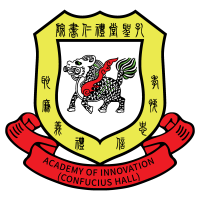| Language Policy |
The School focuses on trilingualism and biliteracy. Apart from Language Subjects, classes of all subjects with either medium of instruction of Chinese or English will be conducted according to students’ ability. NCS Chinese and Chinese History will also be arranged by non-Chinese speaking students which depends on their learning ability. |
| Learning and Teaching Strategies |
1. Small-class teaching, with fewer than 35 students in each class, is implemented to enhance teaching and learning effectiveness. To further enhance the effectiveness of English and Chinese teaching, small classes are arranged for English and Chinese classes according to students’ levels.<br>2. Discovery learning with group activities and inspiring questioning techniques is focused on fostering students’ self-learning ability and interest in order to bridge to a bright future. |
| School-based curriculum |
1. Electives: 2X, 3X and 4X. Chinese History, Physics, Chemistry, Biology, Economics, Information and Communication Technology, Visual Arts, History, Geography and Mathematics (Extended Part)<br> 2. Curriculum highlights: <br>Junior Forms:<br>- Teach every student Confucianism with Confucius Studies as a extended part of Chinese Language. <br>- Implement School-Based Curriculum based on students’ ability.<br>Senior Forms: Offer all-round and diversified curriculum with flexibility of electives to cater to individuals’ interests and needs. Students can choose 2 to 3 electives and Applied Learning courses (COS), including Programming, IT, Early childhood education, Creative Media etc. |
| Approach to Catering for Learner Diversity |
The School follows the Confucian belief of ‘teaching for all’ in which all teaching staff bear the unconditioned love to all kinds of students.<br>1. High Achievers<br> - Special attention (two teachers to one student) is paid by subject teachers and class teachers to boost their potential.<br>2. Students with Special Education Needs (SEN, including dyslexia, student’s emotional or mental distress and new immigrants from Mainland)<br> - Extra care is provided and regular meetings on students’ performance on and off campus are conducted by the Principal, clinical psychologists, social worker, counseling team, discipline team, class teachers and parents. <br> - The four major policies for students with special education needs are: happy learning, potential revealing, self-improving and career planning. |
| Approach to Integrated Education |
School will use the learning support grant in supporting students with SEN, which is included teaching adaptation and assessment accommodation, individual remedial learning, training on social skills, mechanism in soliciting parents' views and discussion on student progress. |
| Education Support for Non-Chinese Speaking (NCS) Students |
|
| Home-School Co-operation |
The Parent-Teacher Association has been established for many years. A variety of activities including mobile parents App, talks, seminars, picnics and dinners are held every year. Newsletters are issued and Parents’ Days are held to enhance the communication between the School and parents. |
| School Ethos |
1. The School has a good reputation and our students have been praised by the public for their excellent performance, including being respectful to their parents, offering seats to the elderly, etc.<br>2. The Principal and teachers treat the students as their own sons and daughters and cater for the needs of individual students, including new immigrants, low academic achievers and high academic achievers. |
| School Development Plan |
1. Promote extensive popular science reading, interdisciplinary STEM and popular science learning activities to consolidate students' knowledge base.<br>2. Create a positive learning atmosphere in the school through Confucianism, life education and moral education. |
| Teacher Professional Training and Development |
The elite team in the School has many staff attained Master level or above. Discipline Master Mr. Chan Shu Chun has been awarded ‘The Best Teacher in Hong Kong’, the social worker, Ms Lui Wai Yee, has been awarded ‘The Best Social Worker in Hong Kong’ and the Principal, Dr. Yeung Wing Hon has received commendation from the former Head of Education Bureau and the current Vice-Principal of Hong Kong Shue Yan University. Dr. Yeung is highly devoted to life-long learning and has attained 2 doctorate and 3 master titles. |
| Life-wide Learning |
1. The School always focuses on the holistic development of students. Therefore, many extra-curricular activities, including Chinese culture, academic study, arts, sports, social service and discipline training, are provided to students to enrich their life.<br>2. We are the first local Chinese school to sign up for the inaugural School of Rugby programme in Hong Kong.<br>3. We provide students with a series of worldwide exchange programmes and international cultural exchange activities to widen their horizons, for example, exchange programmes with Germany, International music workshop, International Symposium on Water Resources Protection, Sister School Scheme, American, Denmark and India life experience programmes, Inner Mongolia tour, Taiwan tour. <br>4. Our students have won several prizes in both local and international competitions. For instance, our students represented Hong Kong to win a Bronze Medal in the International Sustainable World (IEEE) Project Olympiad in Houston, United States. One of our students was awarded the winner of first 100 writers of year in Hong Kong. Also a student was awarded the winner by 65th Hong Kong Schools Speech Festival (English Speech Competition). The Orienteering Team has also won numerous prizes in country-wide competitions. Our volunteer team has provided social service for more than 1000 hours. Excellent performance was shown in uniform units, design, drama, Chinese opera, fencing, judo, etc.<br>5. The Hong Kong Jockey Club Life-wide Learning Fund, After-School Learning and Support Scheme, and Leung Ho Tong Memorial Fund, $500-Travel subsidy are established to help students with financial burden to participate in extra-curricular activities. |
